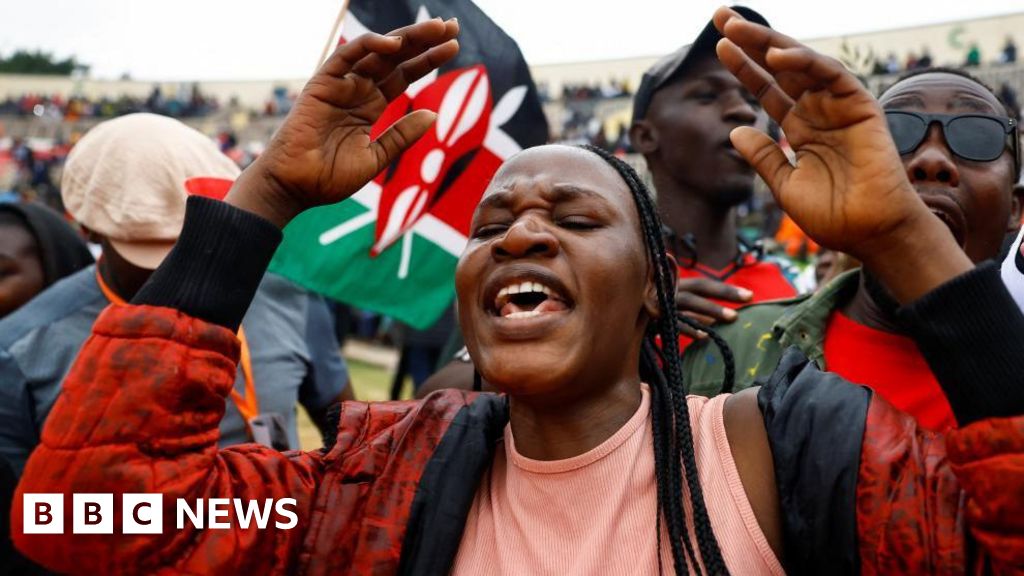Useful information
Prime News delivers timely, accurate news and insights on global events, politics, business, and technology
Useful information
Prime News delivers timely, accurate news and insights on global events, politics, business, and technology

Thousands of mourners attend the state funeral of former Prime Minister Raila Odinga at a national stadium in the Kenyan capital.
Many carry national flags, portraits of the late leader and T-shirts emblazoned with his image to pay their final respects.
Security remains tight in and around the stadium, with police and military deployed to prevent a repeat of the riots witnessed on Thursday during the body viewing ceremony.
At least three people died after police fired shots and deployed tear gas in an attempt to contain the huge crowd that had come to escort Odinga’s body from the country’s main airport after his arrival from India, where he died on Wednesday.
The presidents of Somalia and Ethiopia were among the regional leaders who attended the funeral at the Nyayo National Stadium.
As Odinga’s body entered the stadium in a ceremonial military procession, mourners broke into chants, whistles and songs.
They chanted “Raila usilale, bado Mapambano”, a popular Swahili political slogan, which translates to “Raila, don’t sleep, the fight is not over.”
It is a symbolic call for the late leader’s spirit to remain alert as he continues his political struggle.
During the funeral ceremony, President William Ruto led mourners in singing Odinga’s favorite reggae song, Jamaican Farewell.
His widow, Ida, appealed to Kenyans to stand for peace and unity as they mourn the former prime minister.
“Raila hated dishonesty. He hated greed. Greed that has affected the fabric of our society,” he added.
Former President Uhuru Kenyatta brought a moment of warmth to the somber ceremony as he recalled the fun and thoughtful moments shared with Odinga.
“Sometimes after work we would just sit together, talk and laugh,” said Kenyatta, who had backed Odinga’s failed fifth presidential bid in 2022 after defeating him in disputed polls five years earlier.
Bishop David Kodia, who led the service, said Odinga never used his political power or money to intimidate people.
On Friday morning, Odinga’s body was brought to parliament, where it was viewed by select parliamentarians and dignitaries.
Odinga, a giant figure on the Kenyan political scene, died on Wednesday at the age of 80 in India, where he was receiving medical treatment.
Mourners carried palm branches and leaves, a symbol of mourning and pain among the Luo ethnic group to which Odinga belonged.
On Saturday his body will be transported to Kisumu, a city in western Kenya on the shores of Lake Victoria, his political stronghold.
The public will have the opportunity to view the body before it is buried on Sunday at his farm in Bondo, about 60 kilometers (40 miles) west of Kisumu.
According to the family, Odinga’s wish was to be buried as soon as possible, ideally within 72 hours.
A seven-day mourning period has been declared.
He was a leading figure in Kenyan politics and for many years was the country’s main opposition leader, losing five presidential campaigns, the most recent three years ago.
Odinga repeatedly said his victory had been stolen from him, citing vote rigging.